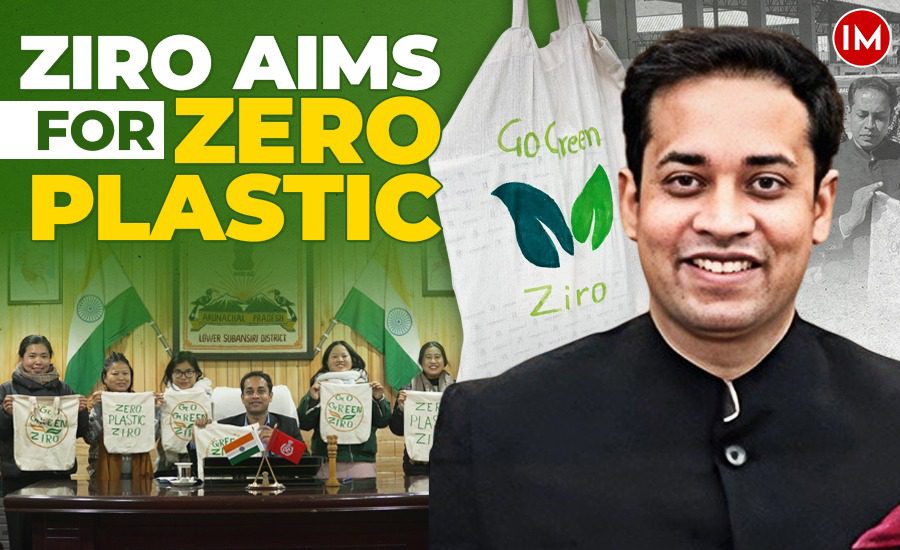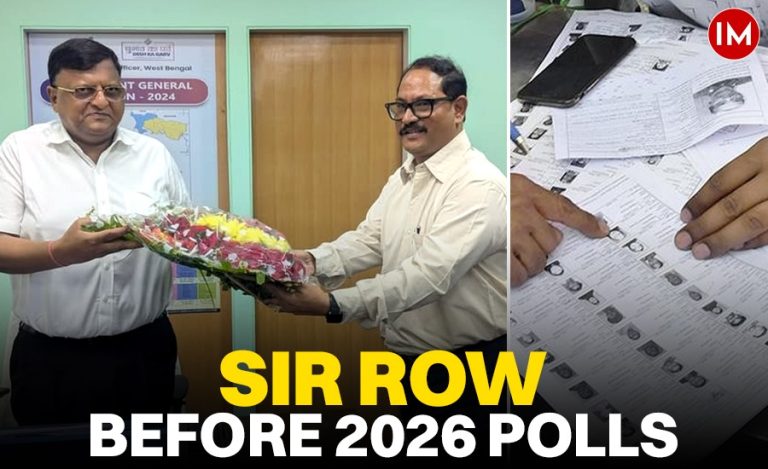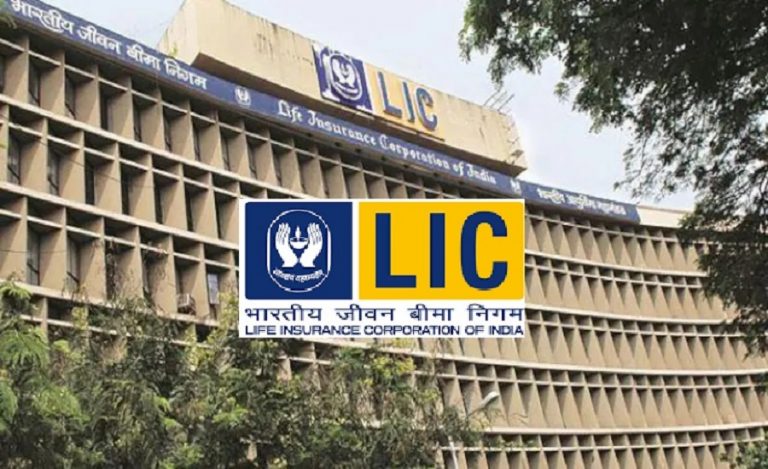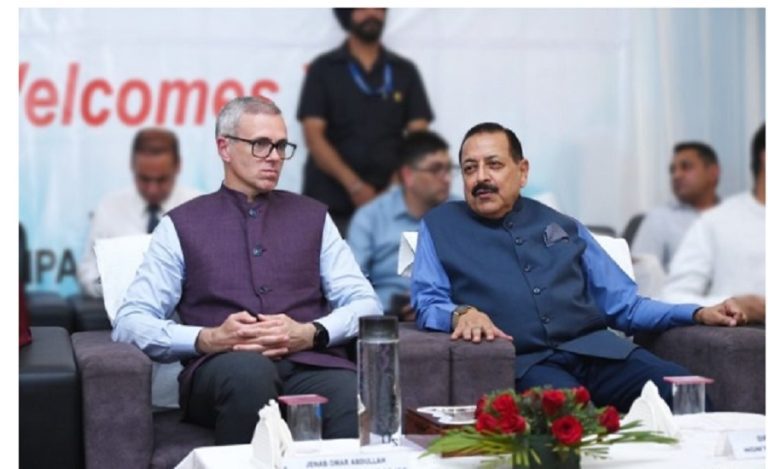Ziro Valley in Arunachal Pradesh’s Lower Subansiri district is known for its lush landscapes, terraced fields, and organic farming practices. The region, home to the Apatani tribe, has long followed sustainable agricultural methods such as the paddy-cum-fish culture, where fish farming is integrated with paddy cultivation, minimising the use of inorganic pesticides. However, with increasing tourist footfall and growing plastic waste, maintaining the region’s ecological balance has become a challenge.
To tackle this issue, IAS Vivek H.P., Deputy Commissioner of Lower Subansiri (2016-batch, AGMUT cadre), launched the ‘Plastic Free Ziro’ initiative. The program aims to eliminate plastic waste through a community-driven approach, ensuring sustainability without imposing harsh penalties. Instead of sudden bans and fines, the administration chose to collaborate with shop owners, bazaar committees, and local self-help groups (SHGs) to phase out plastic use gradually.
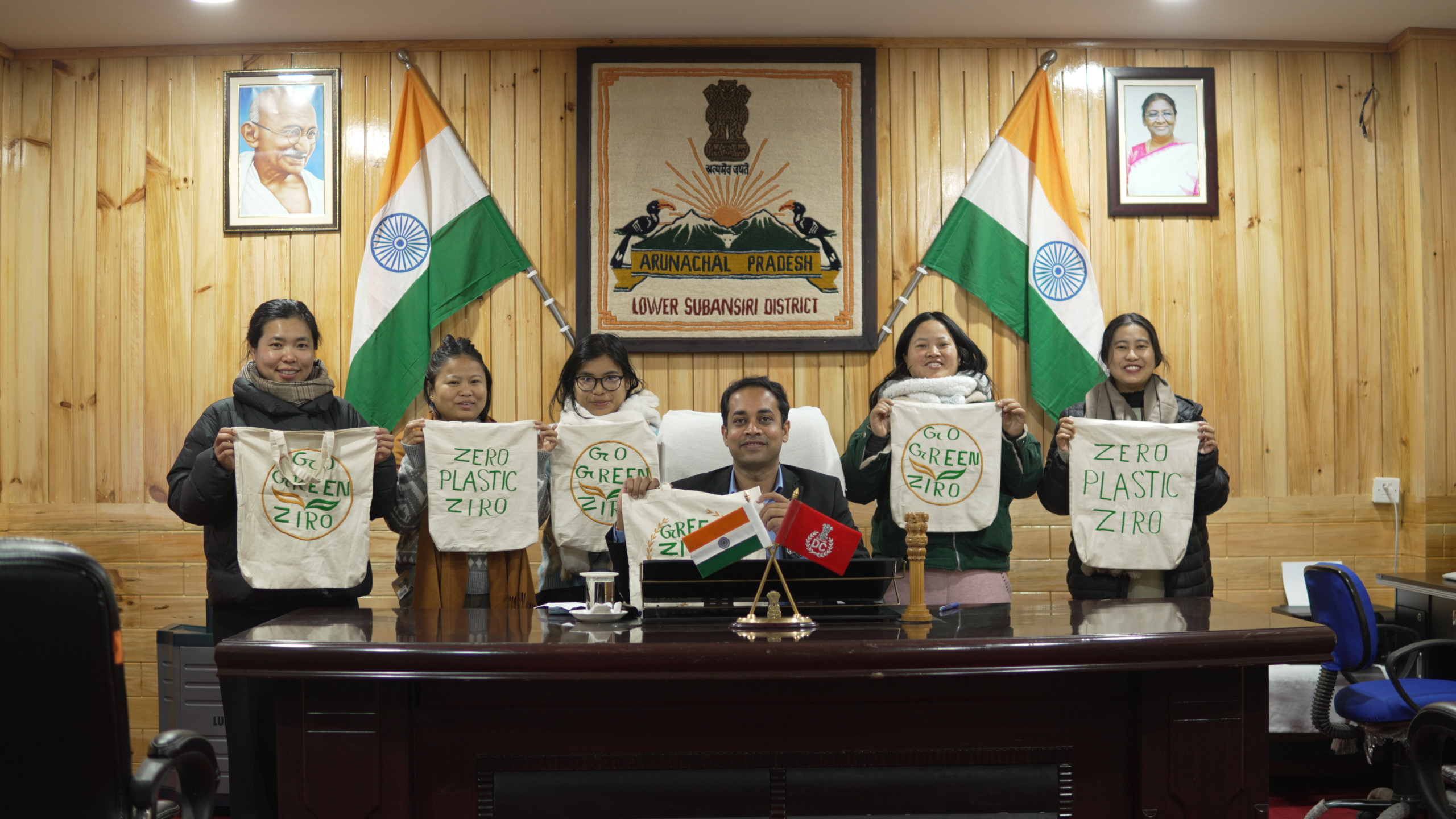
A COMMUNITY-FIRST APPROACH
Understanding that enforcement alone would not yield long-term results, IAS Vivek HP convened a meeting with shop owners and market committees to discuss legal restrictions on single-use plastics. Instead of imposing penalties, he encouraged voluntary compliance by introducing cloth bags as an alternative. “We didn’t want this to be just another top-down directive. The idea was to make people feel like stakeholders in the process, so they could understand the benefits and take ownership of the change,” Mr. Vivek shared with Indian Masterminds.
To facilitate this transition, the administration decided to distribute cloth bags for free initially and later offer them at subsidised rates. To manufacture these bags, local SHGs—comprising around 3,100 women—were engaged. Many of these women were already skilled in agriculture and garment-making, making them ideal partners for the initiative. An unused school building was repurposed as a manufacturing unit, providing a dedicated space for cloth bag production. This move not only promoted sustainability but also created employment opportunities for women in the district.
The cloth bags were designed with tribal motifs and cultural elements that reflect Ziro’s heritage. Collaborations with NGOs, student unions, and private schools ensured widespread awareness, with students playing a key role in educating their families about the initiative. “When students talk about something at home, it has a lasting impact. They become change agents within their communities,” the officer said.
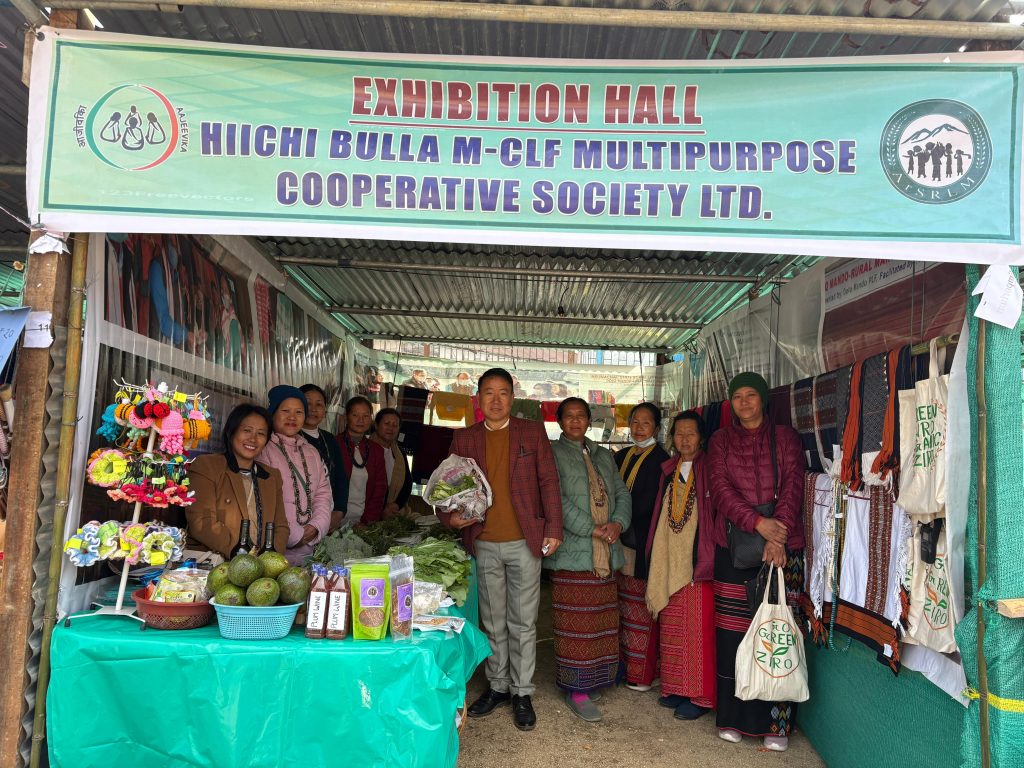
OVERCOMING CHALLENGES
Like any major policy intervention, the initiative faced hurdles. Initial resistance came from market committees, who were concerned about whether customers would be willing to pay for cloth bags priced between ₹10 and ₹20. To address these concerns, the administration conducted awareness drives and assured shopkeepers that a gradual transition was in place rather than an abrupt ban.
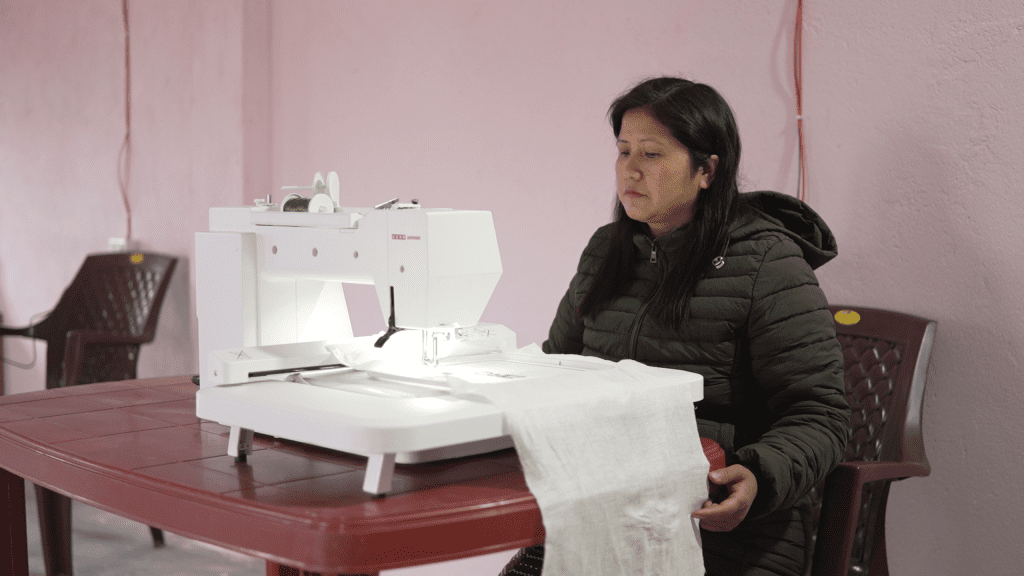
Another challenge was securing a location for the manufacturing unit. Some local residents raised concerns about potential disturbances from the repurposed school building. Engagement with the Apatani Women’s Association and other community stakeholders helped address these apprehensions. “We wanted the community to see the larger picture—that an unused building, if not put to good use, could become a neglected space. Instead, it is now a centre for livelihood generation,” said the Deputy Commissioner.
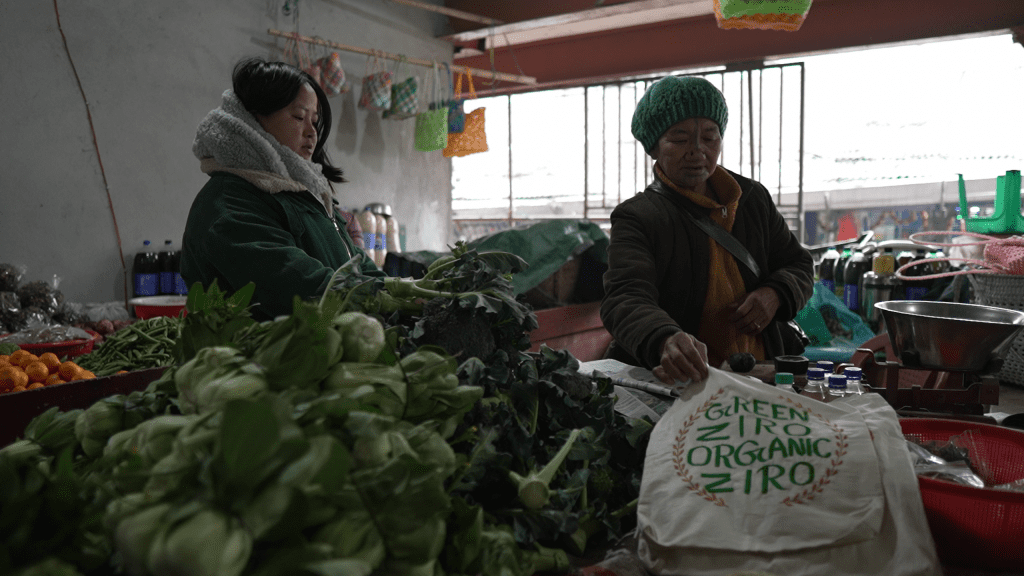
To further address community concerns, additional facilities were introduced in the building, including a crèche for children and a healthcare sub-centre, making it a more inclusive and beneficial space for local women.
A SUSTAINABLE FUTURE
The initiative has received positive feedback, particularly from the women in SHGs, who now have a steady source of income. Encouraged by this response, the administration plans to introduce these women to institutions like the National Institute of Design (NID) to enhance their skills and help them expand beyond local markets.
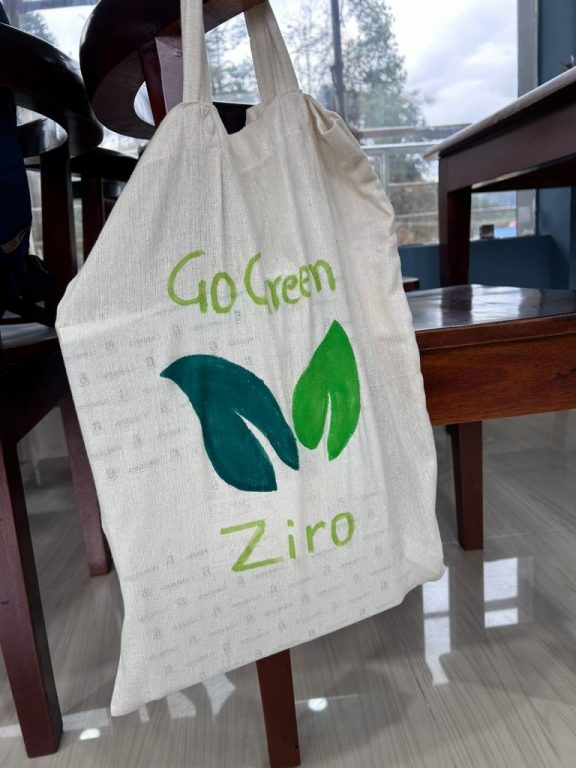
While the program is still in its early stages, its impact is already visible. The shift toward cloth bags is gaining momentum, and with sustained efforts, Ziro is on its way to becoming a model district for plastic-free living. The administration plans to assess the initiative’s progress over the coming months before formally declaring the district plastic-free.
“We are not just replacing plastic with cloth bags; we are fostering a mindset shift towards responsible consumption. That is the real goal,” said IAS Vivek H.P. With a collective effort from the administration and the community, Ziro is moving toward a more sustainable future—one cloth bag at a time.

